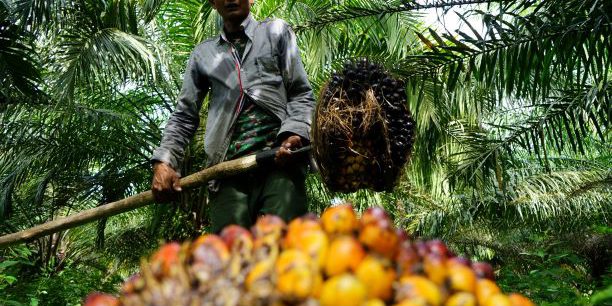The European Council and the European Commission both agreed on May 16 to adopt the EU Deforestation-free Supply Chain Regulation (EUDR), which is designed in the context of making Europe’s economy greener, all while some of its members are reverting to coal in response to the recent energy crisis in the wake of the Ukraine war. Palm oil is one of seven commodities covered by the regulation. From the perspective of palm oil-producing countries, the regulation is baseless and misinformed for several reasons. First, the EUDR will affect smallholders. Indonesia and Malaysia’s palm oil industries, which together supply 85 percent of the global palm oil output, have created more than 20 million jobs with at least 60 percent being smallholders. They have been able to uplift farmers’ families, thus shielding them from poverty. Although the regulation stipulates that smallholders will be exempted from the rules until 2025, the main key is that when it is enforced, whenever that may be, it will undermine the role of palm oil as a major provider of jobs. None of the largest producing countries will let their oil palm farmers remain in poverty. Second, by targeting palm oil the regulation demonstrates its misunderstanding of deforestation. Palm oil plantations are grown in replanted areas, unlike other commodities such as soy. In addition, palm oil contributes only 0.31 percent to global deforestation, while the livestock industry uses most land and is the main driver for global deforestation with a 71.2 percent share. The World Resource Institute suggested that Indonesia has in fact reduced its primary forest loss rate since 2016 from almost 1 million hectares to below 0.2 million ha in 2021. Meanwhile Malaysia reduced its deforestation from nearly 0.2 million ha to 0.06 million ha during the same period. Third, the EU is once again undermining the producers’ national efforts to halt deforestation and improve sustainability in the palm oil industry. Both, Indonesia and Malaysia have their national sustainability standards, namely the ISPO and MSPO, respectively. These standards adopt the principles underlined by the Sustainable Development Goals (SDGs) and the Roundtable on Sustainable Palm Oil (RSPO). If the EU intends to promote more sustainable palm oil, the EU can help the producing countries to enlarge the adoption of sustainability certificates by the smallholders. For example, with fewer than 10 percent of Indonesian growers certified, they will not be able to enter the EU market. In addition, to fulfill our global responsibility, the secretariat of the Council of Palm Oil Producing Countries (CPOPC) has also developed the Global Framework Principles for Sustainable Palm Oil (GFP-SPO), which will ensure that palm oil products meet the global sustainability standards applicable to all vegetable oils. So, what can the EU do? At this stage, while the regulation is yet to be implemented, it is best for the EU and the palm oil-producing countries to engage closely with each other. As a promoter of free world trade, I am convinced that it is not within the best interests of the EU to undermine the voice of its trading partners, especially if a policy could lead to discriminatory treatment against certain products. If Brussels wishes to make the regulation inclusive, then Jakarta and Kuala Lumpur must be engaged. There are still plenty of opportunities to optimize. One of which will be the planned joint mission by the ministers of Indonesia and Malaysia to Brussels this week. On May 30-31, the delegations will take this opportunity to convey the concerns of the two major palm oil-producing countries over this EU regulation. Some of the main issues regarding the EUDR that will be brought up in this mission are the burden it will put on smallholders, who are among the key players of the industry. The EUDR implementation, its rules on geolocation, the concern over data protection and its unilateral benchmarking system will erect barriers to exports from the palm oil-producing countries. Considering their achievements in reducing deforestation, both Indonesia and Malaysia should be classified as low-risk countries under the EUDR. Since palm oil, as an industry, works to achieve the SDGs, Indonesia and Malaysia believe that the value of the UN agenda “Leave no one behind” can and should be applied to this regulation, by urging the EU to establish more practical approaches and measures. To achieve this, the two governments are willing to work together with the EU to create an inclusive and holistic framework in the promotion of sustainable agriculture. This visit is hoped to unveil the greater and more prominent impact of the regulation on the palm oil sector, such as the increased cost of production, unfair playing field and the non-tariff barriers that are against WTO rules. In the end, if the EU believes in the value of partnership, what is best for all is dialog and constructive engagement. No particular standards should be made and imposed unilaterally without addressing the concern of the palm oil-producing countries.










